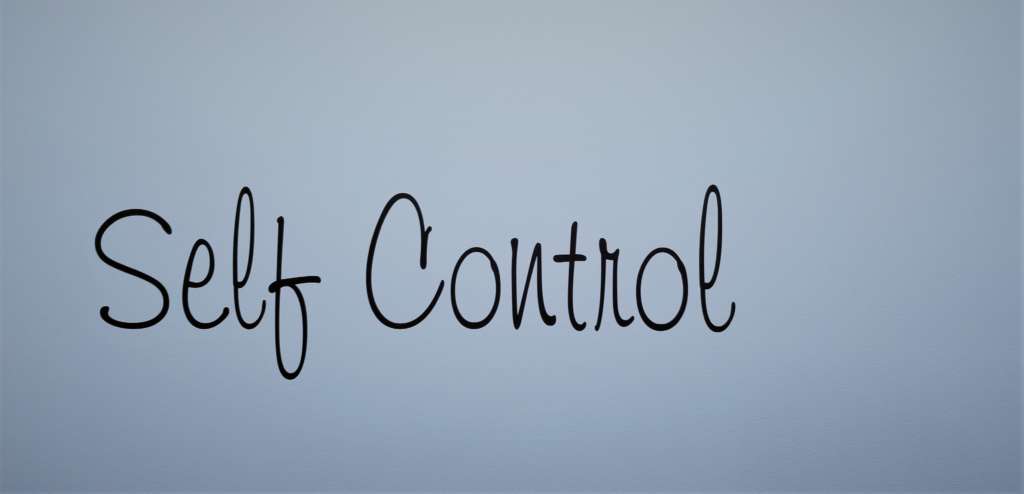If you cannot control yourself, there is little hope to influence others. Self-control is vital to our success. People who have good self-control tend to be both more popular and more successful in many areas of life. Self-control (also called impulse control) is one of the most important skills that we can learn. The positive effects spill over into many different parts of our lives and allow us to make better decisions and experience a better reality. Those with low self-control, though, are at risk of overeating, addictions, and underachievement. Unfortunately, self-control frequently fails. Sometimes we overestimate our resistance. It is like a muscle and can be built up, but we need to know how to develop and boost our self-control.
When we practice self-control, it becomes easier to make decisions, which increases our chances of success. It can help us curtail impulsive behaviors such as lying and binge drinking and allow us to focus our energies on the task at hand and tune out distractions that make sure we perform to the best of our abilities. It also allows us to kick those negative thoughts out of our heads, a major impediment to long-term success.
Many techniques can help us to self-control as
1- Make a list of the habits or behaviors you want to control. If people in your life have made suggestions about your habits, take those suggestions into consideration. Remember that true change comes from the inside so also listen to your intuition and honor how you feel as well as the feedback you have received from people in your life. You have to be committed to making change and building self-control in order to truly change your behaviors. Some examples might be smoking, eating, work habits, productivity, alcohol, controlling your temper, shopping or spending money, etc. By recognizing the moments when you get the urge to act impulsively, you’ll be more equipped to create a delay between the urge and action.
2- Place time restrictions on impulsive thoughts. Creating space in your thinking will help you reevaluate your actions from a more rational viewpoint. This will also help you learn how to create a delay in your actions instead of just acting upon your urges. For example, if spending money or shopping is one of the areas that you want to build self-control, place a twenty-four-hour hold on any purchases before you buy anything.
You can write down in a small notebook what you were thinking of buying and in twenty-four hours revisit your list and decide then if you really want or need the item(s).
3- Breathing exercises: If you have a cigarette or food craving, instead of immediately giving in to the craving, set your phone timer for five minutes, and focus on breathing
4- Find a healthy distraction: Instead, recognize the urge and actively try to distract yourself with something else. This can help distract your mind from the urge or craving and give you space to truly decide if you want to act on that urge. Sometimes doing something with your hands is helpful, such as crocheting, knitting, folding origami, or even texting a friend.
5- Set realistic goals. Part of failing with regard to developing self-control is in getting frustrated for not changing overnight eating or being able to quit a behavior smoking. Set yourself up for success in your efforts by setting realistic goals and tapering away from the behavior rather than stopping all at once.
- Mark your progress: progress is not perfection. Keep a calendar specifically dedicated to your efforts. When there are days that you felt you lacked self-control, mark it on your calendar, and journal about what preceded it that perhaps triggered your impulsivity. The more you become aware of yourself and your patterns, the easier it will be to see challenging times coming. For example, maybe the holidays are a stressful time for you, and you notice yourself eating much more just from the pressure of everything you have to do. Next year, you will know that the holidays are a time that self-control becomes difficult for you, and you can prepare yourself by beefing up the strategies you learned about while educating yourself about binge eating.
- Motivate yourself. Maintain clear reasons for yourself why you want to control the behavior and remind yourself of them continuously. Try to find your inner motivation and journal about it. You could also keep a list of reasons on a small piece of paper in your wallet, or program a reminder on your phone.
- Channel the energy into positive behaviors. Try to fold in different behaviors to replace the behavior you are trying to build self-control around.
- Develop new hobbies: can be a wonderful distraction as you practice self-control. Part of changing behavior is replacing that behavior with something that is healthier and not vulnerable to impulsivity.
- Reward yourself. Make sure you are giving yourself proper rewards for attempting to build self-control and change. Rewarding yourself for practicing self-control will help reinforce positive behaviors to replace impulsive behaviors.









